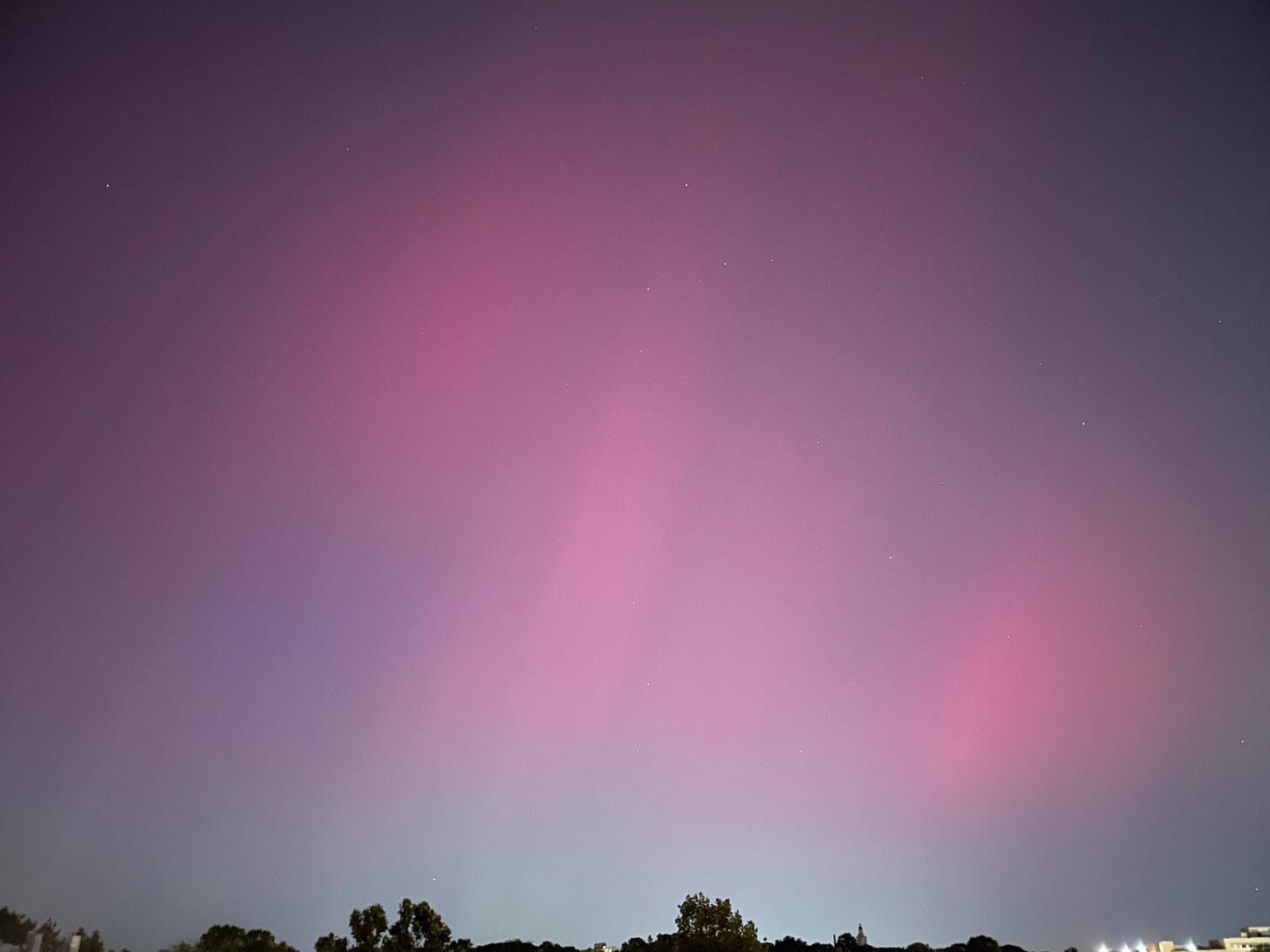My daughter started walking a few weeks ago. Among other things, that also means she started falling, a lot. She doesn’t seem to mind. But, at least at first, she also didn’t put two and two together to establish why she kept falling — because she always had her head raised, looking forward and up, rather than at the various obstacles over which she kept tripping.
As she’s gained a steadier footing, she’s started to make the connection between the objects around her and her own ability to navigate them without sending her little body tumbling to the floorboards. She now weaves through the scatters of toys and books that she’s strewn around, generally avoiding them and staying upright.
It means she has to stop if she’s going to look up. But she still does that, especially since nearly the entire world is still above her.
At some point, lots of people stop looking up. We’re constantly looking down at our phones, or down at the floor in front of us, so as to avoid too much eye contact in public spaces. We look down at our desks. Down at our watches. Down at our meals. No wonder so many of us suffer from back pain.
Earlier this year, I got my first excuse to look up. A family trip to California to say goodbye, then to Texas, coincided with the total solar eclipse. My in-laws’ house, where we would be staying, was smack dab in the center of the path of totality. I’d knew lots of people traveled to see these things, but I was still somewhat skeptical as to just how awe-inspiring it could actually be. It’s just the sun and the moon, two things we see every day, when we bother to look up.
Except it’s not. At 99 percent totality, the sliver of remaining sun through my eclipse glasses was interesting, but nothing particularly noteworthy. Then I heard a genuine roar of wonder ring out, from all the way in the downtown of the municipality where my in-laws live, a couple miles from their house. It was like being in the bleachers as those behind home plate react first to a thundering crack off the bat.
Suddenly, the bright, Texas sun went out like a candle, the temperature dropping 10 degrees, leaving us standing in a midday twilight. Glasses off, looking up, the sun and the moon seemed gone, replaced by a single, silver orb, surrounded by shimmering waves of iridescence. It was beyond anything I could have imagined. It didn’t make me believe in god, but it made me more receptive to understanding those who do.
My second excuse to look up came last week. We’d gotten very excited by the solar storms back in May, only to have completely overcast skies when the Northern Lights descended all the way into the tropics. We had to settle for extremely jealously hate-liking social media posts of the incredible light displays that friends and strangers were able to witness. Perhaps it was too much to ask to see both natural wonders in such short succession. But then, more storms hit, as this solar cycle continued to spin toward its peak.
This time, after nearly two straight weeks of rainy, dreary skies, we had perfect visibility. As we walked the spiral staircase to our rooftop, turning toward the north, I saw the red glows before we even reached the top. There it was, the aurora borealis, a thing I thought I’d have to brave the winters of Iceland, or at least Wisconsin, ever to see myself, right above our rooftop in the middle of Washington, D.C.
My daughter napped through the eclipse. She was too young, probably, to even have been able to see it, much less make sense of it, when it happened. Likewise, the Northern Lights only appear after dark, which is after her bedtime. Even if she could have seen the colors, she wouldn’t have understood how rare they are, why the night sky may well never look like that above her house ever again. It takes a lifetime of patterns establishing the way you know the world to be for something so dramatic to redefine your ideas of what’s possible.
She’s still building those patterns, still figuring out what is to be expected. Her obstacles are, for now, only the ones she can see in front of her in her small, little world. But even if our adult worlds seem so much bigger, that relativity gets washed out in an instant by the scale of the cosmos.
I’d like to think that events like these provide some sort of forced, common awareness of how small we really are; how insignificant our petty disagreements; how arbitrary our artificially drawn borders and affiliations and designations; how much we really all share with and need from each other to survive against the immeasurably vast, cold expanse of the universe. The number in your bank account and the color of your skin make no difference to the sun and the moon.
So while I’m happy that my daughter has learned the importance of seeing, understanding, and avoiding the roadblocks in front of her, I hope she remembers, every now and again, to look up.




